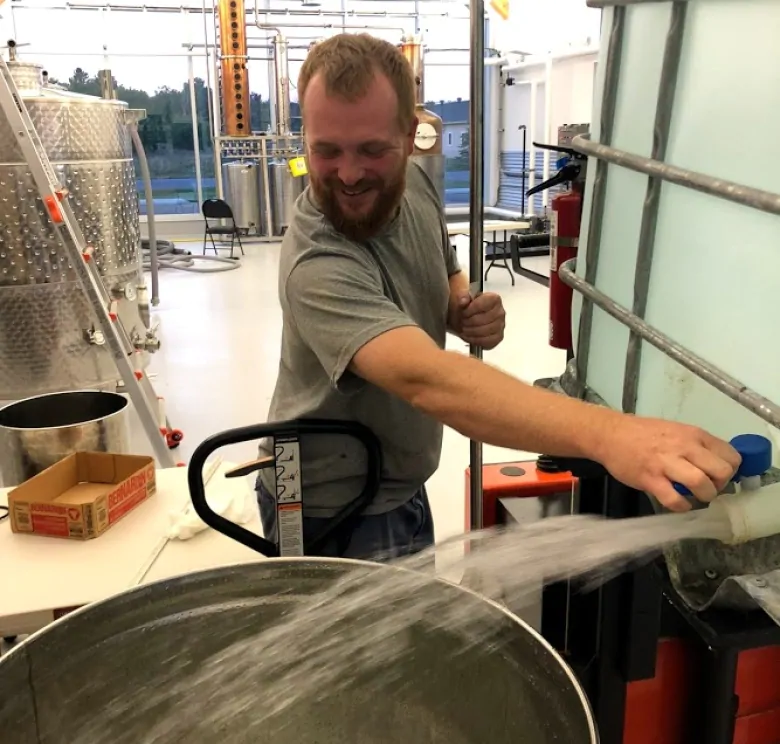Milk-based liquor gets shot at lucrative vodka market

An Almonte, Ont., distiller is “ecstatic” he can now put the word vodka on the label of his milk-based drink after the federal government loosened some longstanding liquor rules.
Until now, Dairy Distillery owner Omid McDonald has had to call his unique alcoholic drink “Vodkow” because Canadian liquor rules stated a distillery could only label its product vodka if it was made from grain or potatoes, treated with charcoal and lacked any distinctive “character, aroma or taste.”
We can call it what it is — a vodka.– Omid McDonald, Dairy Distillery
Last November, the Canadian Food Inspection Agency (CFIA) announced it would be reviewing that definition, and conducted a review earlier this year.
Last week, the government announced it had changed the food and drug regulations and widened its decades-old definition of vodka.
“It’s really amazing to see a 65-year-old regulation updated, and we were really ecstatic about it,” said McDonald, who lobbied the CFIA for the change.
Distillers can now use fruits, dairy or honey to make vodka, and they may employ a process other than charcoal filtering.
‘A win-win for everyone’
The changes come at a good time for the only Canadian distillery using milk byproducts to make vodka.
“It was a great change,” McDonald said. “It’s just a win-win for everyone.”
Vodkow, which has been in production since November, finally made it onto LCBO shelves just two weeks ago, but not in the vodka aisle. McDonald is now busy making new labels for his product, and he hopes the new classification will translate into more sales.
“Before, when you searched for vodka on the LCBO website, we didn’t come up because we weren’t classified as such and now we do. It just makes explanation and marketing more straightforward because we can call it what it is — a vodka.”
The changes, which align with vodka standards in the U.S. and Europe, take effect immediately. Canadian producers will be required to reveal the main ingredient on their labels with phrases such as “produced from milk” or “produced from potatoes.” Canadian distillers have until Dec. 13, 2022, to follow the new labelling rules.
The federal government said it hopes the changes promote competition among distillers, create more interprovincial and international trade, and lead to more innovative vodka products.
“I’m really happy with everyone at the government who took that effort to fix something that needed to get fixed,” McDonald said.





